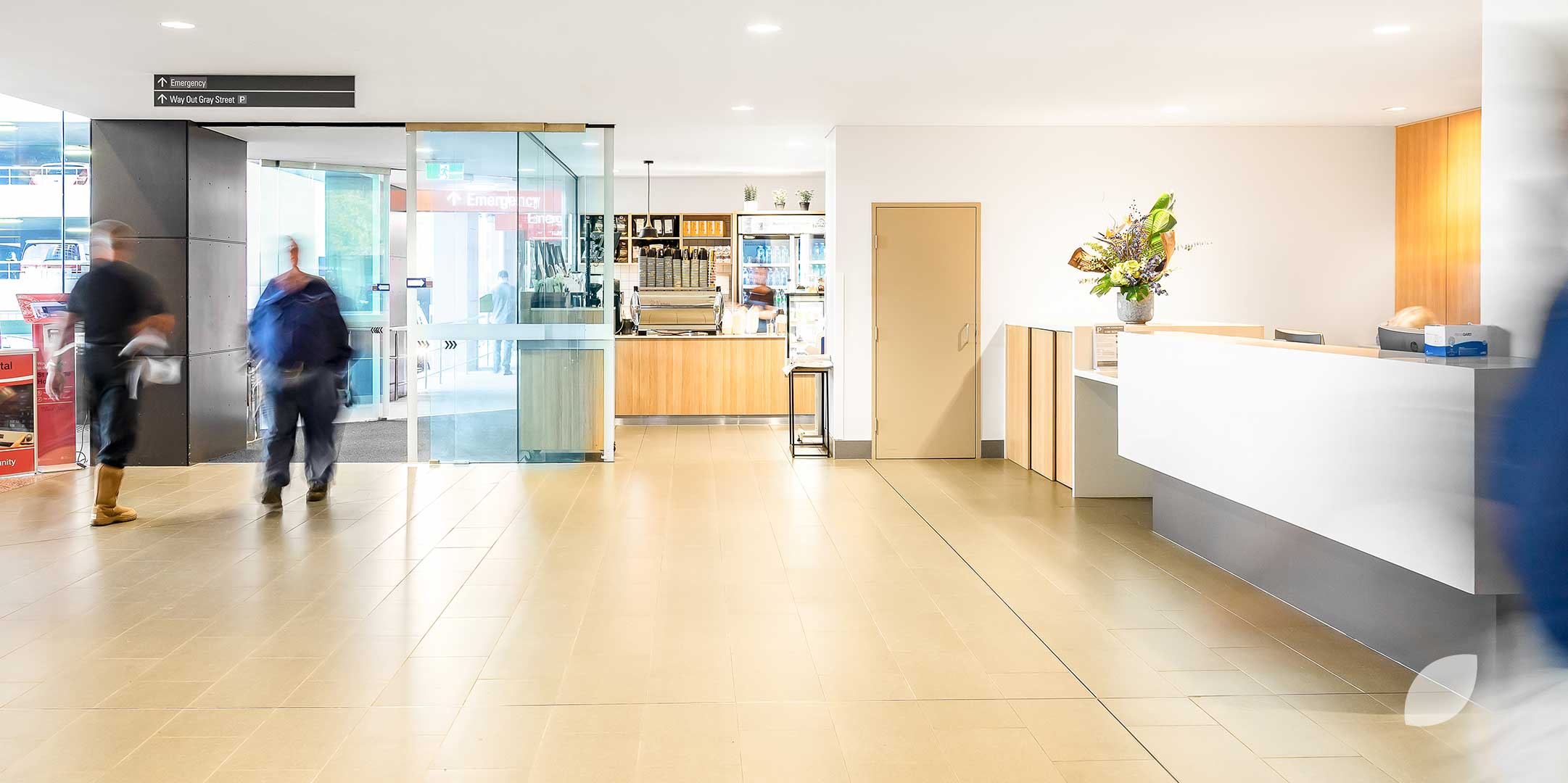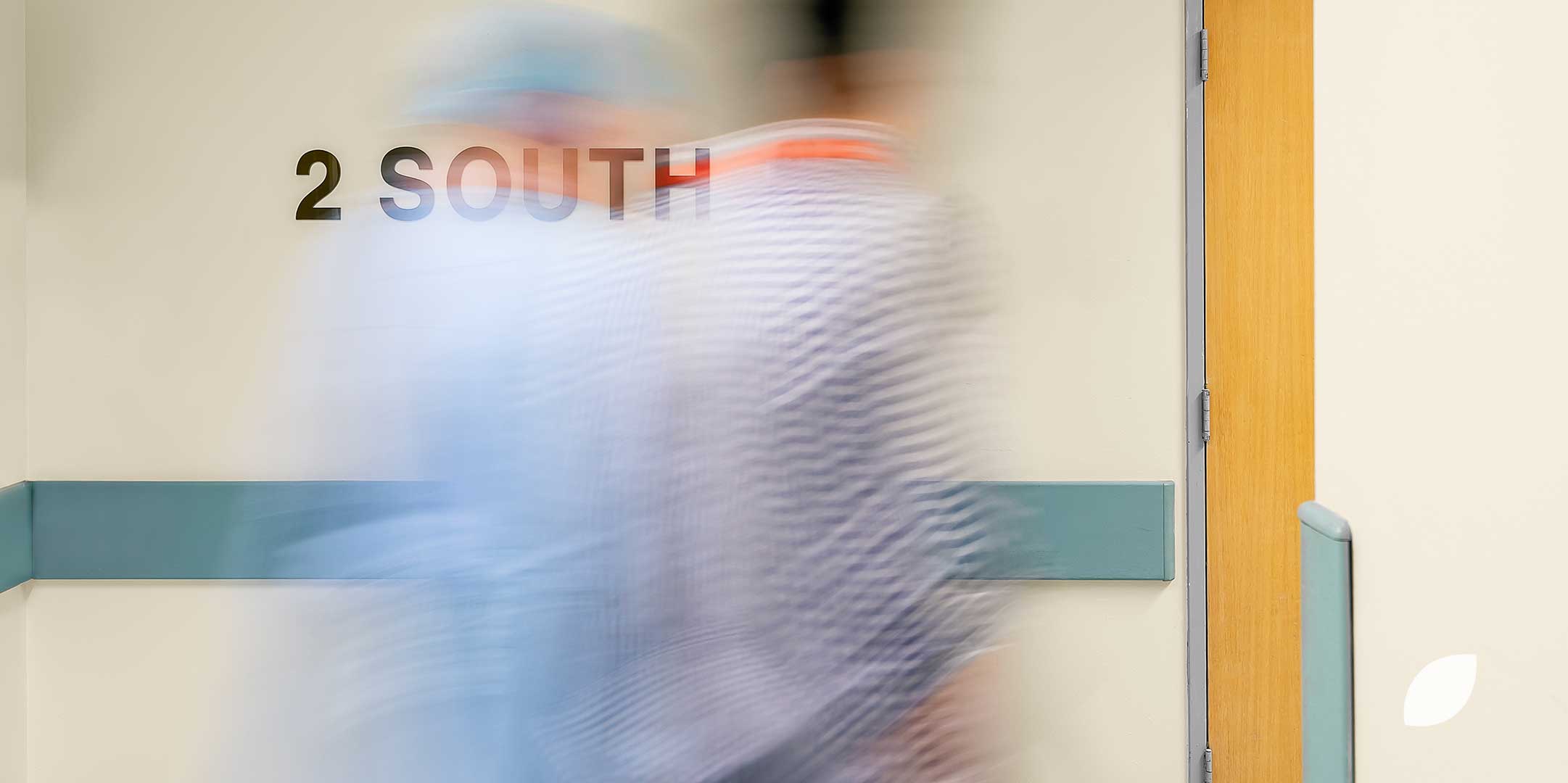On the day of surgery
Patients arrive at the Day Surgery Unit, located at level 2 in the Clinical Services Building, at the allocated time – which will have been given to you the evening before via phone.
Fast from 6 am on the morning of surgery, nothing to eat or drink.
In the morning
You will be briefly seen by your surgeon before surgery should you wish to ask any questions or voice concerns. You will be taken into the operating theatre at approximately 8am. Your support person, a friend or family member, may stay with you until this time. We will telephone them once the operation is underway to let them know how the operation is proceeding. The surgeon will call your support person once the operation has been completed with an explanation of what has been done.

The Operating Theatre – Surgery
Surgery generally lasts for 8 hours.
Peritonectomy surgical procedures may include a combination of some of the following.
- Laparotomy
- Division of adhesions/scar tissue
- Stripping of peritoneal lining
- Bowel resection – formation of stoma – on variable parts of small or large bowel depending on tumour involvement
- Removal of gall bladder
- Removal of spleen
- Resection of part of liver
- Removal of a kidney
- Resection of part of the pancreas
- Gastrectomy – partial or total stomach removal
- Resection of part of abdominal wall muscle +/- insertion of mesh
- Resection of part of diaphragm muscle +/- insertion of mesh
- For females, hysterectomy and or removal of ovaries and tubes
- Bladder surgery +/- re-implantation of ureters
- Insertion of Tenckhoff® catheter or intra peritoneal port for administration of early post-operative intra peritoneal chemotherapy (EPIC)
- Removal of “belly button” (umbilicus)
The Intensive Care Unit (ICU)
You will be brought from the operating theatre to the intensive care unit (ICU) where you will be cared for by a specialist team of doctors and nurses under the direction of an Intensive Care Specialist (Doctor). In addition, the ICU is also staffed with dedicated allied health, social work and physiotherapists who work collaboratively with us to provide holistic care to yourself and your family. ICU is located on level 4 and 5 in the Acute Services Building, visitors should report to the ICU administration desk located on level 4 for directions on where to find you. They are welcome to come and see you after your surgery once you have settled into ICU.
Once you leave the operating theatre you will still be anaesthetised, with a plastic tube in your wind pipe connected to a machine to help you breathe (called a ventilator). This can be unpleasant as you wake up, but the ICU team will use medication to keep you a little sleepy, pain free and as comfortable as possible. You will need help from the ventilator generally just overnight following surgery, but possibly longer if there are problems or complications from your surgery, it varies a lot. The ICU team works in collaboration with us to ensure you are receiving treatment appropriate for your condition.
You will have many other tubes and wires attached to your body and will be surrounded by many kinds of machinery, some of which make various noises or have flashing lights in order to monitor your health and function. All of this is there to help the ICU team help you, so try not to worry about it. You will have your own nurse at all times in ICU while on the ventilator, and we recommend that visitors be limited to close family/friends only, with just two visitors in the room at any time. While there are no restricted visiting hours during the day, visitors may be asked to wait outside while various inpatient activities are taking place. Please ask them to be patient – your health and well-being comes first. Intensive care doctors are available at all times to speak with your family about your progress. Often patients do not remember their ICU stay.
Once you can breathe effectively without external help, you will be disconnected from the ventilator and the tube in your throat will be removed. You will remain under the care of the intensive care doctors and specialised nursing staff and the surgical team who will continue to visit you while you remain in ICU. Once off the ventilator your ICU nurse may be looking after you and one other patient. If you are receiving EPIC, you will need to remain in ICU until your chemotherapy is finished. All going well, you will then be transferred to the general surgical ward on 2 South.
Transfer to Ward 2 South
Once you are ready to leave the intensive care unit, you will be transferred to ward 2 South, a 28-bed surgical ward, located in the tower block. The nursing staff on 2 south have been trained in the care of patients who are recovering from peritonectomy surgery and other abdominal surgical procedures. The staff will support you in your recovery and encourage you to reach your optimal best to prepare you for discharge, in conjunction with medical teams and allied health. Experienced nurses from ICU will continue to monitor your progress and work with the ward staff and surgical team to optimise your care, thus reducing the potential of a return to the unit.
On 2 South ward your surgeon and team will come and see you each morning any time after 7 am, your family is more than welcome to be on the ward at this time to ask any questions. However, once the medical team have seen you, your family will be asked to leave the ward and not return until 10:00am. On the ward, visiting hours are from 10:00am to 08:00pm. Visitor numbers are restricted to 4 per patient.
Even though you may have private health insurance, you will not be given priority to have a single room on the ward. Unfortunately, in Public Hospitals, single rooms are allocated to patients with infectious conditions. At any time, if you have any issues with your care, please do not hesitate to come and speak with the Nurse Unit Manager.

Other topics
Will I be Involved in research?
The results obtained from previous peritonectomy operations have been important in improving our understanding of how the potential risks and benefits add up in your particular case. So, for the potential benefit of every future patient, we will ask for your consent to include data from your surgery in our database. It has been approved by the Human Research Ethics Committee of the South East Sydney Local Health District.
We would also like you to give your permission for us to contact you and your doctors in the future, so that we can find out about the long-term effects of your peritonectomy operation after you have left our care.
St George Hospital is a teaching hospital and so we are always trying to improve our practice, and conducting research is one way of doing that. If we want to invite you to participate in a research project, we will explain it to you and seek your informed consent beforehand. This will always be voluntary and if you decide not to participate, this will not adversely affect your treatment
How long will I stay in hospital?
The average hospital stay is 21 days. A few patients have been discharged after a minimum of 8 days, but others, due to complications, have remained in hospital for several months. The average stay in intensive care is about 2 nights, this usually includes one night on the ventilator. There is a large variation in recovery time post peritonectomy. Complications can result in very prolonged stays for some patients.
Personal hygiene recommendations
To reduce the risk of infection we ask you to be vigilant with hand hygiene e.g. washing hands before eating, after toileting. Do not interfere with wound dressings or disconnect drains or drips for showering.
Maintaining good personal hygiene can reduce the risks of hospital associated infections. The hospital supports an “it’s ok to ask” policy should you see a staff member not perform hand hygiene before attending your care. Visitors are asked to perform hand hygiene and to refrain from visiting hospital if they are unwell to reduce the risk to themselves and to our patients.

